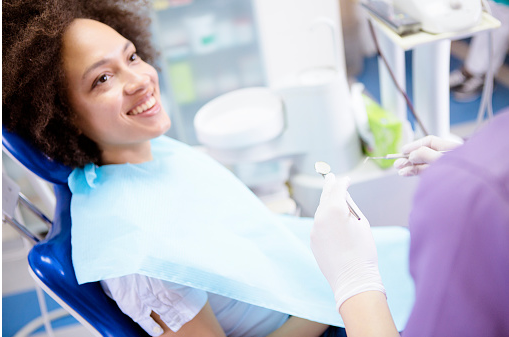Do periodontal pockets heal without any special treatment? To answer the question of periodontal pockets healing themselves you first have to understand what they are and how they are formed. Periodontal pockets are a result of gum disease.
Since your youth, you have always been told to brush your teeth twice a day and to floss at least once. These activities remove the bacteria on your teeth that, if left in place, will form plaque and eventually tartar. At the gumline, it can cause your gums to pull away from your teeth forming the periodontal pockets. These pockets harbor bacteria. Your toothbrush can’t reach them.
According to Dr. David Mugford, a Crofton, Maryland based Periodontics and Dental Implants specialist, “If left untreated, these pockets can eventually lead to tooth loss.”
How Can You Tell if You Have Periodontal Pockets?
The first sign of gum disease is bleeding gums. You usually notice this when you brush your teeth. “At this point,” notes Dr. Mugford, “the pockets likely haven’t formed and we can easily treat the condition. If you let this condition persist, the bacteria trapped under your gums and the inflammation that results from the immune response, the ligament that attaches your teeth to the gum will break down.”
Sensitivity to hot or cold can also be a sign of gum disease, particularly if you have bleeding gums. This happens when the receding gums begin to expose the roots of your teeth. If your teeth are also loose, gum disease is likely the culprit.
Can I Heal Periodontal Pockets Myself?
In order to heal these pockets, you have to remove all of the plaque and tartar that formed on your teeth and under your gums. Though you may be able to reduce the plaque, you won’t be able to remove the tartar yourself.
Once the plaque has calcified into tartar it becomes a hard material. “We will have to remove this tartar with special tools that don’t damage the enamel on your teeth,” says Dr. Mugford. “If you catch it before the pockets get too deep, they will heal and tighten around your teeth again by themselves.
Treatments to Correct Periodontal Pockets
There are a number of periodontal treatments to correct these pockets.
- First, there is scaling and root planing. This helps to thoroughly clean in and around the periodontal pockets. It removes the plaque and bacteria on the tooth and underneath the gum line. According to Dr. Mugford, scaling and root planing helps to shrink periodontal pockets and mitigates further infection. This in turn, can help heal gum tissue.
- Gingival Flap Surgery, when the gum tissue is folded back and the diseased tissue is removed, allows the gum to then be secured back into place. This prevents bacteria from entering.
- A gingivectomy procedure removes overgrown tissue around your teeth by cutting it away. Dr. Mugford notes that this allows patients to do a better job cleaning their teeth at home and prevent bacteria from collecting in the gums.
- A procedure that helps to reshape gum tissue around the teeth is known as gingivoplasty. During this procedure your periodontist uses gum grafts to replace areas where the gums have receded.
In sum, the treatment that’s right for you will depend on the severity of your periodontal pockets. During our consultation process we perform a detailed evaluation and work up a customized treatment plan. Our doctors will discuss the recommended treatment plus any other viable options.
“Treating gum disease is very important, and can save you a lot of trouble in the future,” notes Dr. Mugford.
Get More Information on Your Periodontal Condition
At The Mugford Center for Periodontics & Dental Implants in Crofton, Maryland, we have years of experience in periodontics, and love to help patients restore their gums and smile. Let our team help you take that first step towards healthier gums with one of our periodontal gum treatments. Call our office today to find out more: (410) 260-0790.

